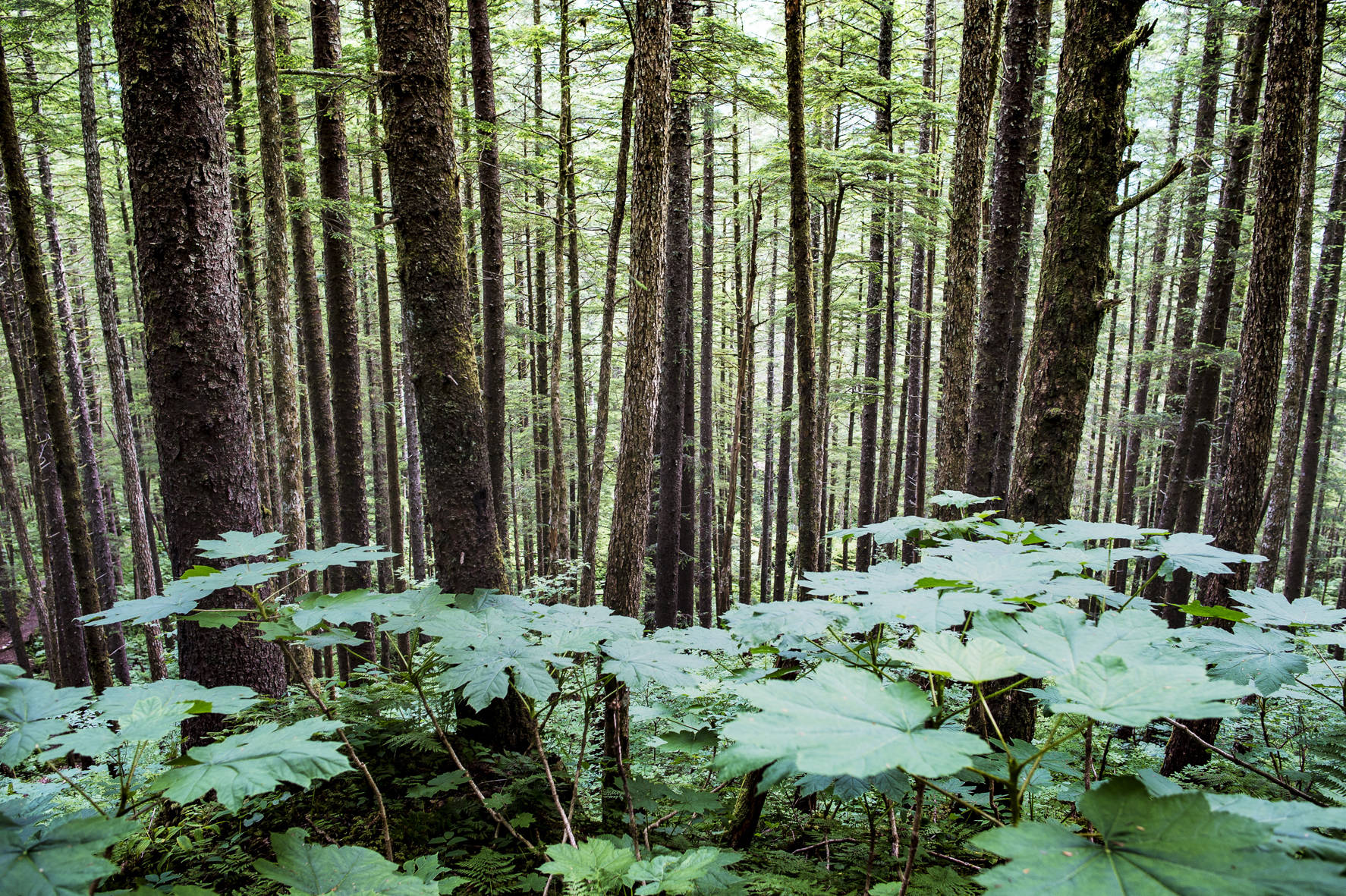A group of 220 natural resource scientists urged Congress with a joint letter Friday not to eliminate the so-called “roadless rule” on Alaska’s Tongass and Chugach national forests.
The letter comes in response to two proposed changes U.S. Sen. Lisa Murkowski, R-Alaska, attached to an Interior Department spending bill in November that hasn’t yet passed. One provision exempts the Tongass and Chugach from prohibitions on road construction and timber harvesting in certain areas of the national forests.
Another section overturns protections in the Forest Service’s Tongass Management Plan for valuable old-growth timber. The plan instead charts a path toward logging younger tree stands.
Overturning these protections, the scientists write, would threaten salmon runs and the Tongass’ ability to store carbon and mitigate climate change.
“Retaining the existing roadless areas of the Tongass is a ‘key element’ in sustaining the region’s extraordinary salmon runs (and their commercial, subsistence, and recreational fisheries),’” the scientists wrote. “The Tongass also represents North America’s largest carbon sink, some of the richest, most biologically productive forest on Earth, and twenty‐nine percent of the world’s unlogged coastal temperate rainforest.”
The letter is signed by four University of Alaska Fairbanks scientists: Drs. Winston P. Smith, Mary Edwards, Ginny Eckert and W. Scott Armbruster. None could be immediately reached for comment on this story.
The Roadless Area Conservation Rule establishes prohibitions on “road construction, road reconstruction, and timber harvesting in inventoried roadless areas on National Forest System lands,” according to the federal register.
Stopping an exemption to the rule on the Tongass and Chugach would be an uphill battle, politically speaking. Gov. Bill Walker supports a repeal of the Tongass’s roadless rule, he said in his State of the State address last week and is currently petitioning for the exemption through the U.S. Department of Agriculture, which oversees the National Forest system.
“The federal restrictions to access in Southeast via the 2001 roadless rule have harmed our ability to develop our resources. Alaskans are the ones best positioned to determine responsible development,” Walker said.
As chair of the appropriations subcommittee covering the Interior Department, the Environmental Protection Agency and the Forest Service, Murkowski has sway over the Forest Service budget. Rep. Don Young and Sen. Dan Sullivan are also in favor of a repeal of the roadless rule.
“The Clinton-era Roadless Rule was nothing more than a last-ditch effort to end the multiple-use mandate of federal forest lands — something that is required by law, but often ignored by the ivory tower elite,” Young said in September.
Sen. Murkowski’s office couldn’t immediately provide comment for this story.
The transition to young growth
The roadless rule effectively bars logging companies from accessing old-growth forest in Southeast. If they can’t punch more roads into the land, then they can’t access old growth, said Dr. Dominick A. DellaSala, a scientist with the Geos Institute, which gathered support for the letter.
The transition to young growth logging from tree stands 50-80 years has become more viable as the forest products industry learns to process and market younger timber. It could catch on in Southeast, Dellasala said, provided it has support from forest managers and politicians.
“The bottom line on this is that there’s a better way and it’s unfortunate that Murkowski is taking a step back. Instead of moving the industry forward, she’s taking Alaska backward,” Dellasala said.
In December, the current Tongass plan took effect. It directs forest managers to fully transition to only young-growth timber harvests in the Tongass within 16 years.
Catherine Mater, an engineer with Mater Engineering, based out of Oregon, helped complete a three-year study of young growth logging in Southeast. She agrees with Dellasala: young growth logging could be the future of Southeast logging. Mater’s study looked at young growth within 800 feet of currently accessible Forest Service road in Southeast.
“The long story short is that there is a fairly significant supply of second growth in that age range 55-70-80 years old that should be looked at to transition,” she said.
Mater said the crossroads between young and old growth logging Southeast is at reminds her of growing pains the Pacific Northwest went through in the ‘80s and ‘90s, when litigation from advocates for the environment put the forest products industry in a tailspin.
Through that process, she learned that there can be a path forward for the logging industry beyond old growth. But instead of fighting those battles in court, she hopes industry advocates and environmentalists can come together for the benefit of both.
“I believe Southeast Alaska is in the same framework here and maybe on the cusp of reinvigorating the forest products industry,” Mater said.
• Contact reporter Kevin Gullufsen at 523-2228 and kevin.gullufsen@juneauempire.com. Follow him on Twitter at @KevinGullufsen.

